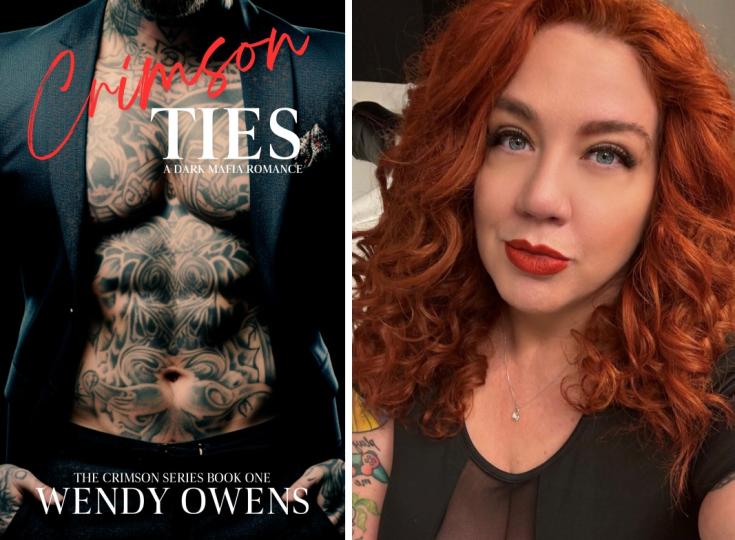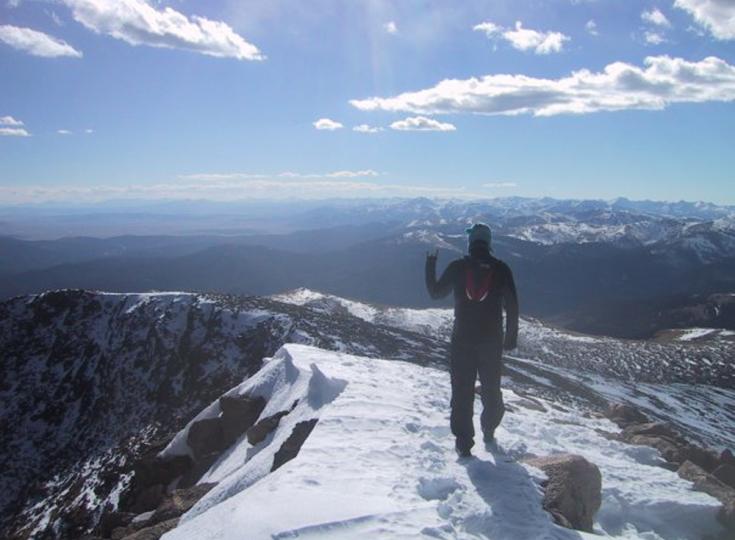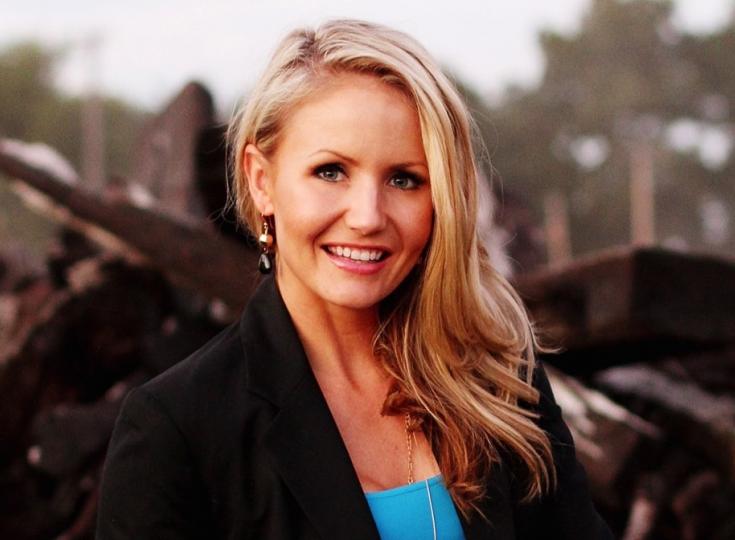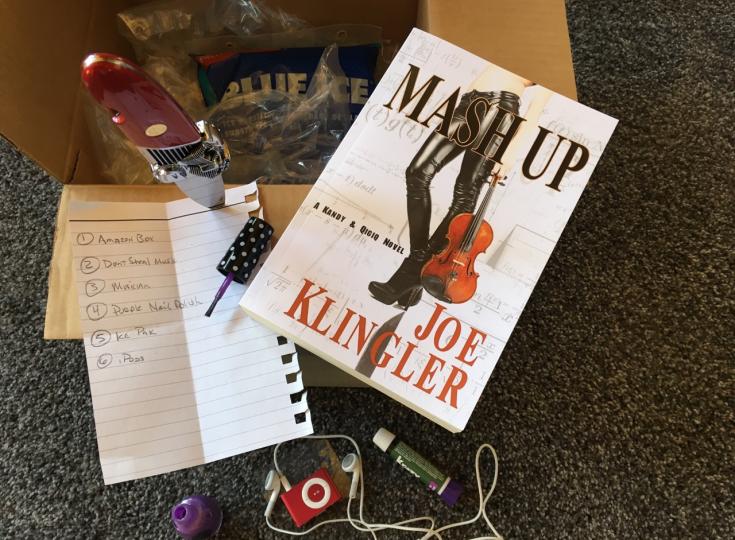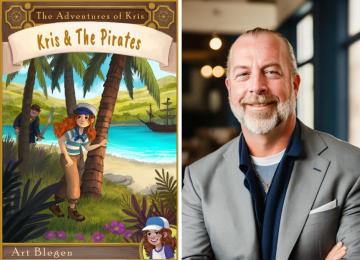Andy Davidson - A Gorgeous, Horrifying Novel
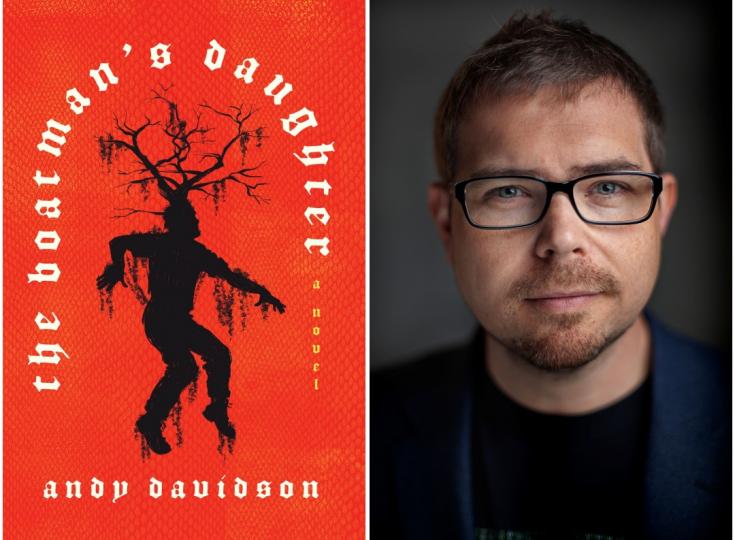
Andy Davidson's debut novel, IN THE VALLEY OF THE SUN, was a finalist for the 2017 Bram Stoker Award for Superior Achievement in a First Novel, This is Horror's Novel of the Year, a 2018 Silver Falchion Award, and the 2018 Edinburgh International Book Festival's First Book Award. He holds an MFA in fiction from the University of Mississippi. Born and raised in Arkansas, he makes his home in Georgia, where he teaches college English and creative writing. He lives with his wife and a bunch of cats. As our Author of the Day, he tells us all about his book, The Boatman's Daughter.
Please give us a short introduction to what The Boatman's Daughter is about.
The Boatman’s Daughter is about a young, orphaned woman named Miranda Crabtree who scrapes by running drugs on the Arkansas bayou. She works for a crazy preacher hellbent on destroying everything good in her life, which includes an old witch and a secret, magical boy with webbed hands and feet. It’s a book about family, about reckoning with the past, about bravery in the face of true evil.
What inspired you to write this book?
After my first novel, which was set in Texas, I wanted to write a book set in my home state of Arkansas—specifically the southwestern region near the Texas/Louisiana border, which is an area rich in myth and history. See The Legend of Boggy Creek. See the twisted ministry of cult-leader, sex-trafficker, and fashion icon Tony Alamo.
Tell us more about Miranda Crabtree. What makes her tick?
Miranda is a solitary individual, driven by two things: the mystery of her own past—specifically what happened to her father one stormy night when she was eleven years old—and her love for Littlefish, the baby born the night her father disappeared. In a way, every decision she makes is based on the love she carries for these two people. So love, I guess, makes her tick.
Why did you pick the Arkansas bayou as the backdrop for your story?
See number 2. Also, Arkansas is known for its rivers and its mountains, its rice fields. But there’s not much written, that I can find, about its river bottoms (John Brandon’s Arkansas comes to mind, but that’s not horror; movie-wise, I think Mud’s very good, but again, that’s crime). So, I think the Arkansas bayou is a verdant patch of ground to explore, especially when it comes to myths and legends and mysteries. I’m a big fan of Alan Moore’s Swamp Thing, and I wanted to try and craft a mythology like that, only set in a world I actually knew as my own.
Besides writing, what other secret skills do you have?
I’m a decent video editor. I also make very bad puns on occasion.
Why did you decide to write a fable, featuring folkloric magic?
Part of Swamp Thing’s mythos is the intersection of pulp science fiction with myth and fairy tale. As I said, I wanted to do that in a world I knew. I also wanted to write about witches, after writing about vampires in my previous book (one classic monster per novel, right?), and witches are rooted, so often, in very specific traditions. So I dove into those traditions and the one that spoke to me was the Russian myth of the Baba Yaga, which ultimately informed a great deal of the book’s plot. It intersected with a few key points of Arkansas history, namely the establishment of a Slavic colony in Prairie County in the early 1900s, which led me to think, sure, there could be a Russian witch in southwest Arkansas in the late 70s. Why not?
The book is fast-paced. How did you pull this off?
Short chapters help. But also making sure that every scene has a conflict that leads to the next scene, somehow. That’s ultimately how you write a page-turner. Or at least I hope it is.
Readers describe the book as dark and ugly, but also strange and beautiful. Was it your intention for them to experience it this way?
Sure. My conception of horror is that our sympathies should ultimately always lie with the literal monsters, while everyday people are the true villains. People are dark and ugly, but as monsters remind us: they’re also capable of a strange kind of beauty and grace. We’re contradictions, and we find empathy for others, most often, in very ugly situations. That overlap between ugly and beautiful is really the target zone for horror, in my opinion.
Is there something that compels you to write? And do you find that writing helps you achieve a clarity about yourself or ideas you've been struggling with?
Every now and then, yes, writing exorcises a demon or illuminates something from the soul. I just recently wrote my first short story in about 16 years, and I think, in many ways, it helped me get through some lingering issues from graduate school. But more often than not, it’s just the daily grind of hitting a word count, like any other job, except you get paid less for it and no one’s there to judge you for months and months and months. Which can be good and bad. It’s lonely work. But it’s also punctuated by moments of sweetness and light, and there are times when you really feel like you reached a mountaintop and the air is so clear and you can see for miles in every direction. That’s sublime—and rare. But not so rare you don’t remember it, or chase it every time you sit down to work.
Is there an underlying message you wish to relay about basic human nature through your characters?
People suck. People are swell.
Do you work to an outline or plot or do you prefer to just see where an idea takes you?
I spend a lot of prep-time outlining, chapter by chapter, scene by scene. I have to know the ending before I start writing. Which doesn’t mean the scenes (or the endings) don’t change. Sometimes characters surprise you, and so you have to leave some flexibility there, but I can’t work by the seat of my pants. Robert McKee’s Story taught me the value of a thorough outline. It helps you finish, and that’s all-important.
Do you have any interesting writing habits? What is an average writing day like for you?
I work best in the mornings. With coffee. I sometimes read a bit from another writer whose work I’m inspired by (though not necessarily emulating) before I begin. An average day is about 1,000 words, if I’m lucky. A few hours before and after lunch. If I’m pushing through, I can do 10 hours in the seat, but I usually have a migraine at the end of it.
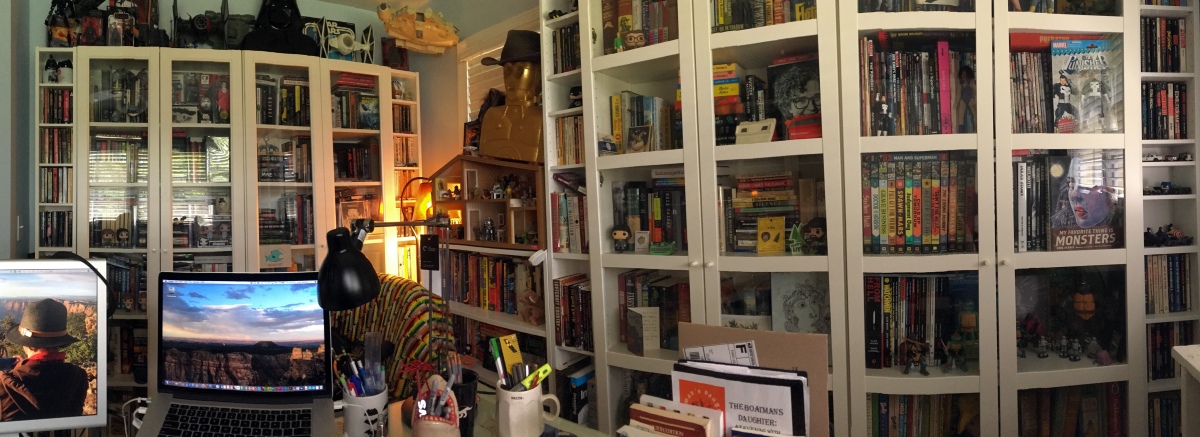
What are you working on right now?
My third book, which is contracted with MCDxFSG, who published The Boatman’s Daughter. It’s about a woman who inherits a vast tract of pine forest in Georgia, and she and her son quickly learn they’re not alone out there in the woods.
Where can our readers discover more of your work or interact with you?
I spend most of my time on Twitter, social-media wise. I love to interact with people there. @theandydavidson. You can also email me directly via my website: theandydavidson.com. I’m also on Instagram: @theandydavidson. Love to hear from folks! (Just don’t tag me in the bad reviews!)
